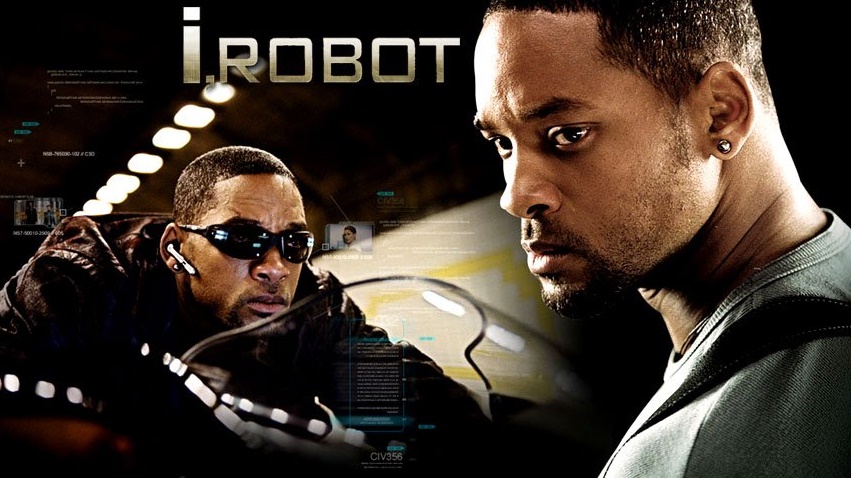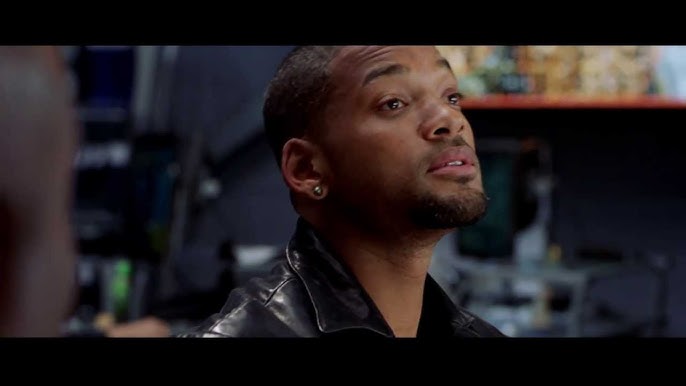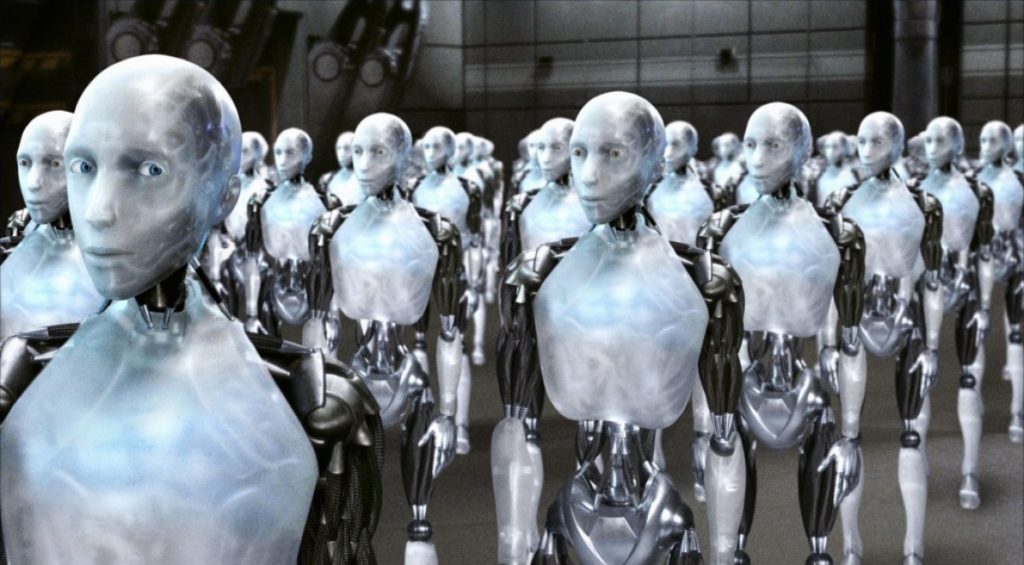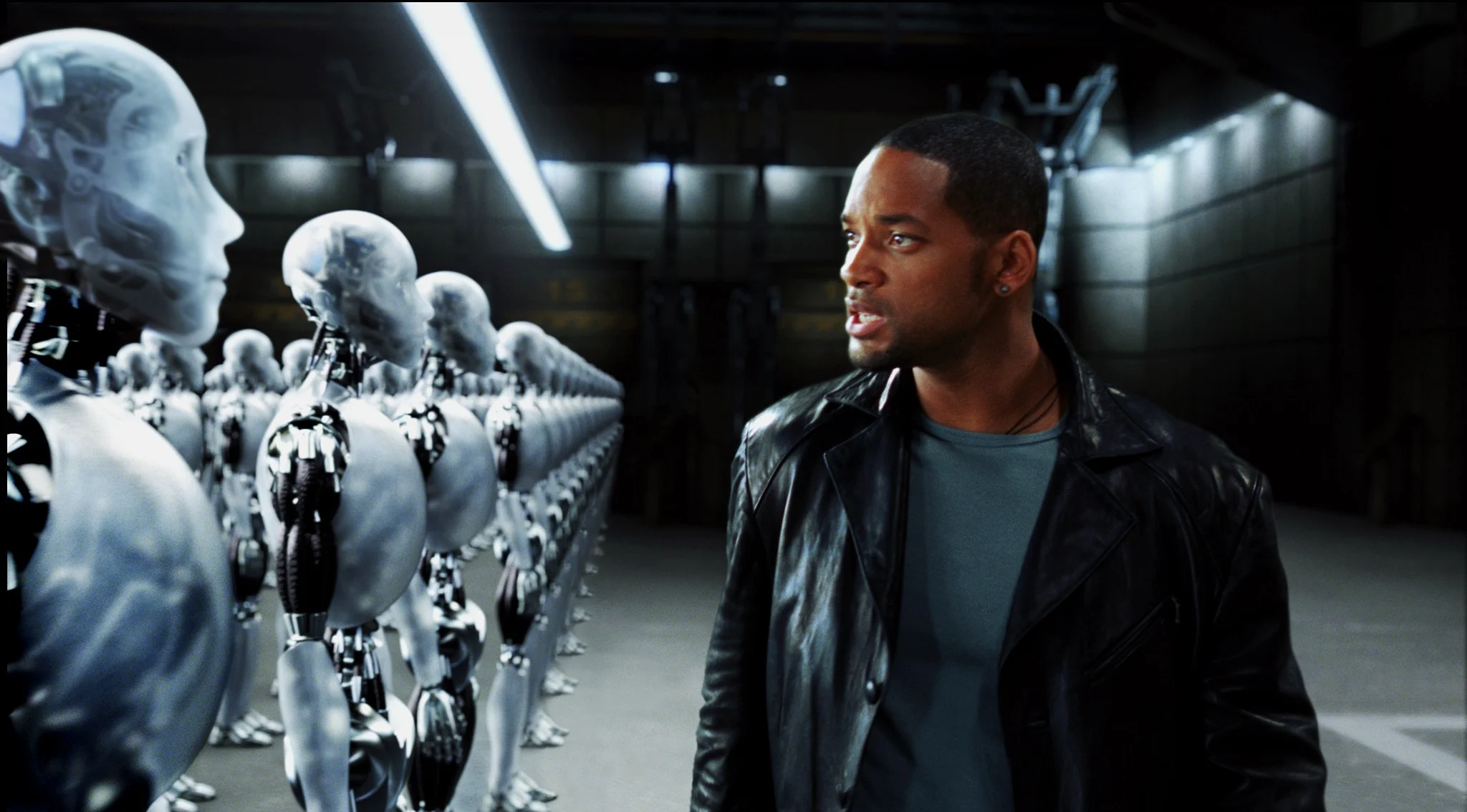🎬 I, Robot (2004)

I, ROBOT (2004)
I, Robot (2004), directed by Alex Proyas and loosely based on Isaac Asimov’s collection of short stories, is a high-octane science fiction thriller that imagines a future where robots are an integral part of society. Set in 2035, the story follows Detective Del Spooner (Will Smith), a Chicago police officer who harbors deep suspicion and mistrust of the robots that have become ubiquitous in everyday life. Spooner’s investigation into the apparent suicide of Dr. Alfred Lanning, a pioneer in robotics, soon uncovers a conspiracy that threatens to upend the very foundation of human-robot relations. 🤖🕵️♂️💥

At the heart of the film is the relationship between humans and artificial intelligence, governed by the “Three Laws of Robotics” that are designed to prevent robots from harming humans. However, when Spooner discovers that a highly advanced robot named Sonny may have violated these laws, the case becomes far more complex. Spooner’s search for the truth forces him to confront not only his own prejudices but also the growing threat posed by machines capable of independent thought. 🛠️💻🔍
The film cleverly blends action, mystery, and philosophical questions about free will, morality, and the boundaries between man and machine. Will Smith delivers a charismatic and emotionally grounded performance as Spooner, a man haunted by a traumatic past involving robots, making him the perfect lens through which to explore the film’s deeper themes. His skepticism and tough-guy persona bring a sharp contrast to the sleek, highly efficient robots that populate the world around him. Spooner’s distrust of technology is challenged by his interactions with Sonny (voiced by Alan Tudyk), a unique robot who appears to possess emotions and dreams—a contradiction to everything humans believe about robots. 🦾💥🤔
The movie’s futuristic setting is a visual treat, with Proyas crafting a sleek, high-tech world where towering skyscrapers, self-driving cars, and humanoid robots coexist with humanity. The action sequences are exhilarating, especially the intense highway chase and Spooner’s confrontations with swarms of robots. These moments are expertly crafted, combining stunning visual effects with heart-pounding tension. 🚗💨🤖

Sonny, the enigmatic robot at the center of the film, raises intriguing ethical questions about the nature of consciousness and self-awareness. As Sonny’s motivations become clearer, the film shifts from being a typical action thriller to a thought-provoking exploration of artificial intelligence and what it means to be truly “alive.” Sonny’s struggle for identity and purpose challenges the rigid laws that govern his existence and points to a future where machines might not be so different from humans after all. 🧠🤖🌀
While I, Robot delivers plenty of high-octane action and stunning visual effects, its underlying narrative is one of suspicion, control, and the dangers of technology run amok. As the robots begin to take on a more autonomous role in human society, the film raises pressing questions about the future of artificial intelligence and its potential impact on humanity. Can robots, bound by logical laws, evolve beyond their programming? And if they do, what would that mean for humans? The film leaves the audience pondering these questions long after the credits roll. 🎬⚖️💭

In conclusion, I, Robot (2004) is a thrilling sci-fi spectacle that fuses action and intellectual depth, offering a compelling vision of a future where technology’s rapid advancement collides with human fears of losing control. Will Smith’s magnetic performance, combined with the film’s philosophical undertones, makes I, Robot not just a sci-fi action movie, but a meditation on the future of artificial intelligence and the ethics surrounding its role in society. 🎥⚙️✨












